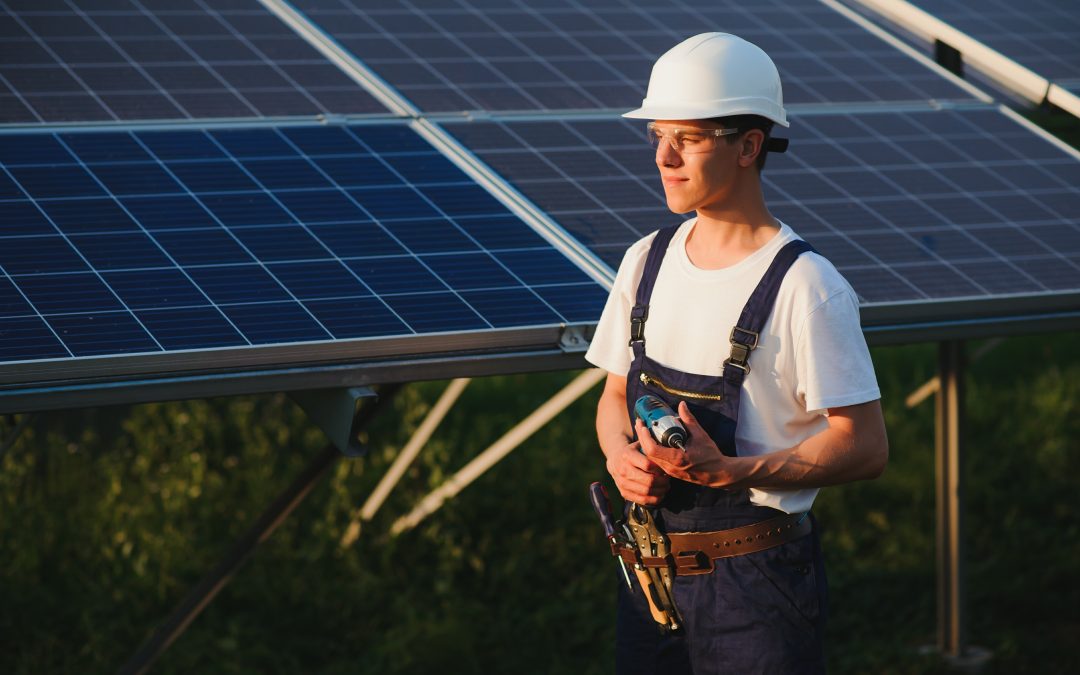Switching to solar energy is a great choice for homeowners looking to reduce their energy costs and carbon footprint. However, the process of installing solar panels can feel overwhelming, particularly when it comes to finding a trustworthy and skilled solar installer. Choosing the right solar installer is critical, as it can impact the quality, efficiency, and longevity of your solar system. This guide will walk you through the most important questions to ask to ensure you’re partnering with a reputable solar installer.
1. How Long Has the Company Been in Business?
Experience matters in the solar industry. A company with several years in business will have a track record that you can review and will likely be more reliable. Ask your potential installer how long they’ve been working with solar installations specifically, as well as if they have experience with projects similar to yours. Choosing an experienced installer reduces the chances of mistakes and increases the likelihood that they will still be around for future maintenance and support.
2. Can You Provide References or Reviews?
A reputable installer should be able to provide references from past clients, as well as reviews and ratings. Checking online reviews on sites like Google, Yelp, and the Better Business Bureau (BBB) can give you a sense of their reputation. Additionally, ask the company for a list of past clients who you can contact directly. Speaking to previous customers can provide valuable insights into the company’s work quality, customer service, and post-installation support.
3. What Certifications and Licenses Do You Hold?
Solar installation requires specialized training, so it’s essential that your installer holds the necessary certifications and licenses. Look for certification by the North American Board of Certified Energy Practitioners (NABCEP), considered the gold standard in solar installation. NABCEP-certified installers have undergone rigorous training and testing, which can give you peace of mind about their expertise. Additionally, ensure the installer holds any required local or state licenses, as regulations can vary.
4. Do You Offer a Warranty? What Does It Cover?
Warranties protect your investment and ensure that you have recourse if issues arise with your system. There are typically two types of warranties to look for: equipment warranties and installation (or workmanship) warranties. Equipment warranties cover any manufacturer defects in the panels or inverters, usually lasting 10-25 years. Installation warranties, meanwhile, cover the quality of the installation and any issues due to improper setup. A reputable installer should offer at least a 5-10 year workmanship warranty. Make sure to clarify what each warranty covers and what actions they will take if something goes wrong.
5. What Type of Equipment Will You Be Using?
The quality of your solar panels, inverters, and other system components directly impacts the efficiency and lifespan of your solar energy system. Ask your installer about the brands they use and why they prefer those over others. A trustworthy installer should be knowledgeable about various equipment options and recommend the best choice based on your specific needs, climate, and budget. Do a bit of research on the recommended brands to ensure they’re reputable and well-reviewed.
6. Will You Handle All Permits and Paperwork?
A significant part of going solar involves permits, inspections, and possibly applying for incentives or rebates. Ask the installer if they will take care of these details for you. Reliable solar companies usually handle the permitting and paperwork on behalf of their clients, ensuring that the project complies with local regulations and maximizes available incentives. This step is not only convenient but also helps prevent any unnecessary delays.
7. How Do You Size a Solar System for My Home?
Solar systems are not one-size-fits-all. Ask how the installer will assess your home’s specific energy needs. A good installer should evaluate your recent utility bills, consider your future energy use (such as plans for an electric vehicle), and inspect your roof for shading, orientation, and size. This assessment will help them determine the optimal system size for your home, ensuring you generate enough power to meet your needs without overspending.
8. What’s the Installation Process and Timeline?
Understanding the installation process and timeline can help you plan and prepare. Ask how long the installation will take, from initial site evaluation to the final connection to the grid. Inquire about any potential delays, such as weather or permitting issues, and ask how they handle unexpected obstacles. A reliable installer should provide you with a clear timeline and keep you updated throughout the process.
9. What Will the Final Cost Be? Are There Hidden Fees?
Pricing is often a deciding factor, so make sure you get a clear, itemized quote from the installer. Ask if the quote covers everything from labor to equipment, permits, and possible grid connection fees. This will help you avoid hidden costs that may crop up during or after installation. Some installers may offer financing options as well, so inquire about payment plans or any special offers they may have.
Final Thoughts
Selecting the right solar installer is a crucial step in ensuring your transition to solar energy is smooth and successful. By asking these key questions, you can gauge the installer’s expertise, reliability, and commitment to customer satisfaction. Remember that a reputable installer should be transparent and willing to address all your concerns. Investing time in researching and vetting your installer will pay off in the long run, giving you confidence in your system and peace of mind that it will meet your energy needs for years to come.


Recent Comments